Disinformation and the Israel-Iran conflict
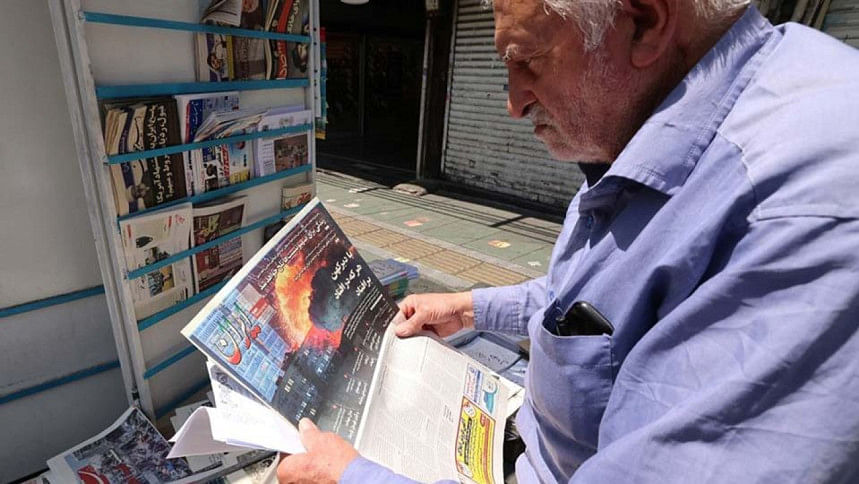
In the high-stakes theatre of Middle Eastern geopolitics, few rivalries are as fraught and consequential as that between Israel and Iran. Their confrontation, long waged through proxies, covert operations, and cyberwarfare, has increasingly become a war not only of missiles and militias but also of narratives and perception. As the spectre of full-scale conflict looms, disinformation emerges not merely as a side-effect of war, but as a weapon of war itself. This is not unique to the Israel-Iran standoff. Recent conflicts such as the Ukraine-Russia war, and even the brief but intense India-Pakistan clashes, reveal how disinformation is now central to shaping international sympathy, diplomatic alignments, and battlefield legitimacy.
Disinformation—intentionally misleading or false information—has assumed a strategic role in contemporary warfare, shaping the informational terrain upon which public opinion, international diplomacy, and battlefield decisions rest. In the Israel-Iran conflict, disinformation is used to justify pre-emptive strikes, delegitimise opponents, rally domestic support, and neutralise global condemnation. Unlike the propaganda of the 20th century, today's disinformation is algorithmically amplified, digitally disseminated to be globally consequential. Crucially, it is disproportionately and deliberately shaped by a powerful consortium of US, Israeli, and European intelligence infrastructures—granting one side a decisive upper hand in monopolising interpretation and totalising perception on the global stage.
Psychological warfare by other means
For both Israel and Iran, the goal is to shape how their actions are perceived rather than merely to carry them out. Israel often justifies its operations as preventive measures against existential threats. When Iranian-backed militias are targeted in Syria or Gaza, Israeli officials frame their actions as limited, precise, and necessary. Iran, conversely, portrays such attacks as unlawful aggression, appealing to international norms and casting itself as the victim of Zionist and imperialist designs.
Yet these competing narratives are rarely anchored in transparent evidence. Casualty figures are selectively reported; satellite images are curated or doctored; and metadata is manipulated. But the informational advantage lies squarely with Israel and its allies. With robust support from the US and European intelligence agencies—often with access to global surveillance systems, sophisticated AI-driven media monitoring, and diplomatic channels—Israel enjoys a structural upper hand in controlling the flow and framing of information.
This intelligence collaboration doesn't simply defend interests. It pre-empts critique. Leaked dossiers, anonymous briefings to Western media, and selective disclosures are orchestrated to generate strategic doubt about Iran's intentions while shielding Israel's actions under a cloak of necessity and legitimacy.
Weaponising social media
The battleground has expanded from physical territory to digital terrain. On platforms like X (formerly Twitter), Telegram, Instagram, and TikTok, armies of bots, trolls, and ideologically aligned influencers wage a perpetual contest over meaning. Israel, bolstered by its cyber units and coordinated hasbara (public diplomacy) efforts, systematically targets trending narratives, deploying content that emphasises Iranian threat perceptions and casts its own military responses as moral imperatives.
Iran, meanwhile, leverages a network of regional proxies and sympathetic voices in the Global South to counter this narrative. But Iran's digital influence—fragmented, reactionary, and linguistically segmented—rarely achieves the same reach or credibility in the Western mainstream. The asymmetry is glaring: Israeli-aligned privileged narratives often appear in prestigious outlets through op-eds, embedded journalism, and think tank publications, while Iranian messaging is filtered through the lens of suspicion and delegitimisation.
Here, the algorithm becomes an ally. Content critical of Israel or sympathetic to Palestinians or Iran is more frequently suppressed, flagged, or shadow-banned on Western platforms—a reflection of the deeper entanglement between Silicon Valley, Washington, and Tel Aviv.
The proxy dimension
Proxy groups further complicate this information ecosystem. Hezbollah in Lebanon, Iranian militias in Iraq and Syria, and Hamas in Gaza operate not only as military actors but as narrative warriors. Through videos, statements, and martyrdom imagery, they craft emotional appeals aimed at mobilising regional solidarity and global outrage. These tactics often blur the line between information and spectacle.
But proxies also provide Iran with plausible deniability. When disinformation is disseminated through unofficial channels, Iran can distance itself while still benefiting from the resulting confusion or sympathy. Israel, in turn, leverages this ambiguity to cast wide suspicion on all Iranian activities, branding even peaceful dissent as subversive or terror-linked.
The disinformation advantage here again rests with Israel and its allies, who can quickly flood the zone with counter-narratives, backed by deep intelligence archives, press access, and institutional trust.
Influencing international diplomacy
Disinformation does not remain confined to the Middle East. Both states aim to sway international institutions and shape global policy. Israel frequently raises alarms about Iran's nuclear ambitions, sometimes leaking or selectively interpreting intelligence. These revelations, often disseminated through Western think tanks and friendly journalists, are rarely scrutinised with the same rigour applied to Iranian claims.
Iran counters by alleging that such leaks are fabrications designed to incite pre-emptive war or sanctions. But lacking equal access to global media platforms and credibility with Western audiences, Iran struggles to gain traction. This imbalance tilts diplomatic outcomes: sanctions regimes, arms sales, and UN resolutions are often influenced by narratives crafted within Western echo chambers, many of which are informed by intelligence sourced from or aligned with Israeli interests.
Suppressing dissent, manufacturing consent
Internally, disinformation serves a dual purpose: discrediting foreign adversaries and stifling domestic dissent. Iran frequently invokes the spectre of Israeli sabotage or Western espionage to delegitimise protests and arrest critics, labelling them foreign agents. Israel, particularly during military escalations, equates opposition to its actions with antisemitism or treachery, creating a climate of fear that chills journalistic and academic freedom.
This convergence of security, nationalism, and information control is hardly unique to these states, but its intensity in the Israel-Iran conflict illustrates how disinformation has become central to regime maintenance. In both societies, the space for debate narrows as truth itself becomes suspect.
A new type of fog: Epistemic chaos
The classical "fog of war" refers to the uncertainty commanders face in the chaos of combat. Today, that fog is epistemic. What is real? What is manipulated? What is staged? In the Israel-Iran conflict, this is no accident—it is design. The goal is not to assert a truth, but to overwhelm the informational field with conflicting claims, delaying action and deepening division.
Israel's alliance with Western media ecosystems and intelligence apparatuses ensures that its narratives often appear first, and more authoritatively. Iran, in contrast, must labour to dispute these with fewer tools, less credibility, and greater risk. This epistemological asymmetry renders global publics and policymakers vulnerable to persuasion through repetition rather than verification.
Disinformation as a weapon of mass distraction
In the unfolding Israel-Iran conflict, disinformation is not peripheral—it is central. But unlike a level playing field of contested claims, the disinformation war is lopsided. With algorithmic amplification and the strategic backing of US and European intelligence and media infrastructures, Israel wields disproportionate influence over what becomes the dominant narrative.
This is not to exonerate Iran or diminish its own manipulations, but to highlight how power shapes perception. Disinformation erodes trust—not just in states, but in the very notion of shared reality. If the international community hopes to de-escalate this volatile confrontation, it must confront the narrative imbalance embedded in the architecture of digital and diplomatic power.
Complicating this landscape further is the deepening division within the US political establishment—between the interventionist neoconservative camp, long aligned with Israeli strategic ambitions, and the MAGA-aligned isolationist right, which remains staunchly opposed to being drawn into another Middle Eastern quagmire, particularly one driven by regime-change aspirations. This internal fracture plays out in the disinformation arena as well, with conflicting leaks, contradictory messaging, and politicised intelligence shaping the narratives that reach both domestic and international audiences. Ironically, this discord—rooted in partisan self-interest rather than principled restraint—has so far acted as a brake on full-scale US involvement, frustrating efforts by more hawkish elements to entangle Washington in "finishing the job" Israel may have initiated.
That said, the imperative is clear: invest in genuinely independent journalism, establish multilateral verification frameworks, and enforce accountability on digital platforms. In an age where virality eclipses veracity—and where intelligence leaks parade as journalism—truth is not merely compromised; it is systematically dismantled. In this asymmetrical information war, that erosion of truth may be the most perilous casualty of all.
Dr Faridul Alam is a retired academic who writes from New York, US.
Views expressed in the article are the author's own.
Follow The Daily Star Opinion on Facebook for the latest opinions, commentaries and analyses by experts and professionals. To contribute your article or letter to The Daily Star Opinion, see our guidelines for submission.

 For all latest news, follow The Daily Star's Google News channel.
For all latest news, follow The Daily Star's Google News channel. 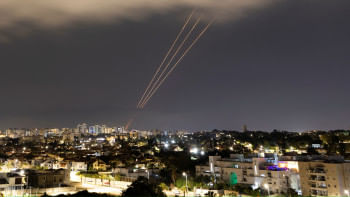
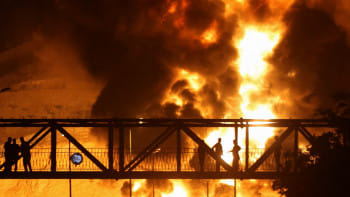





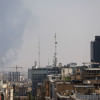
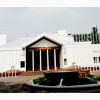


Comments